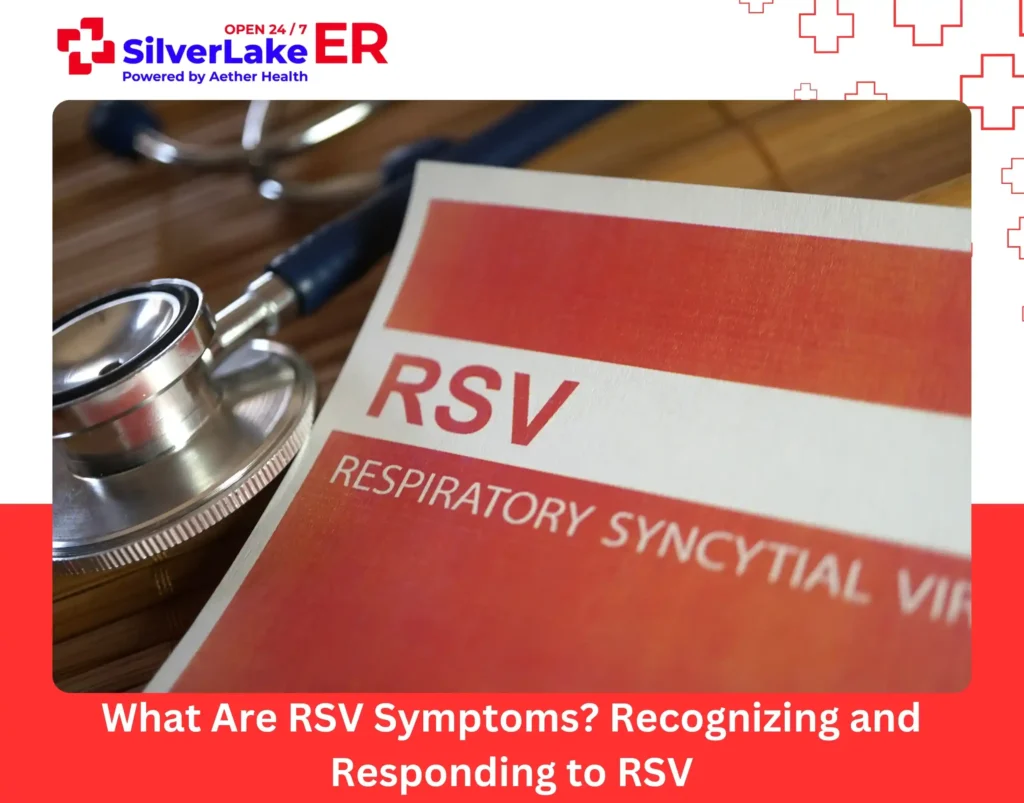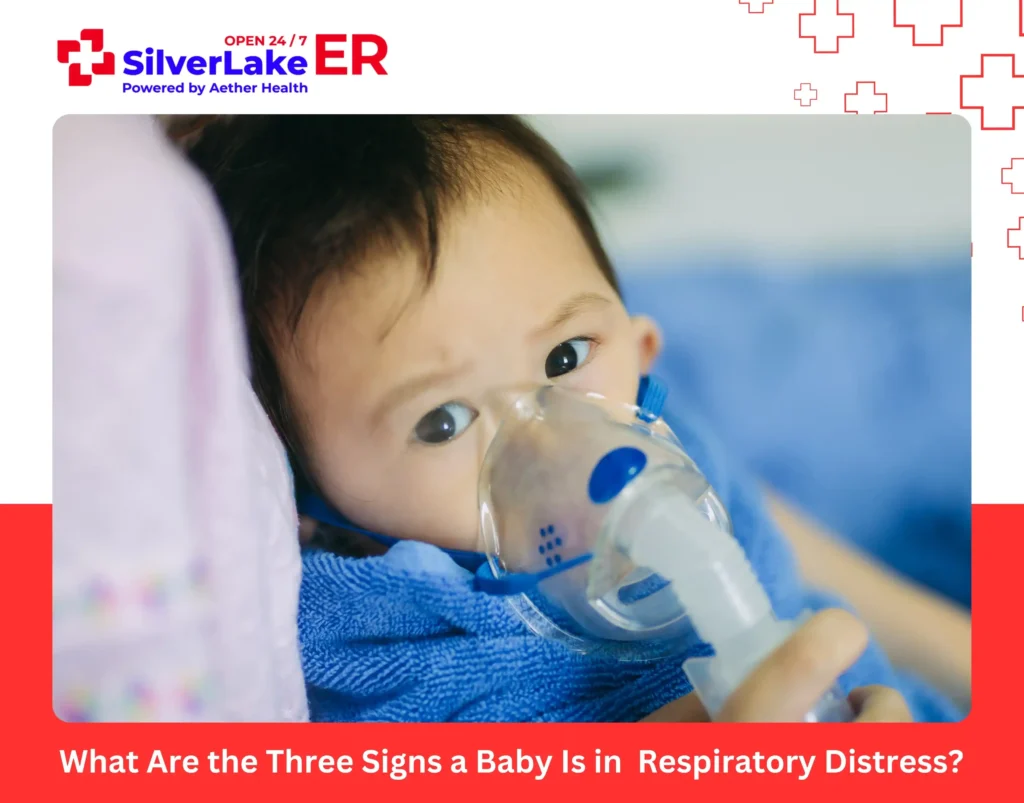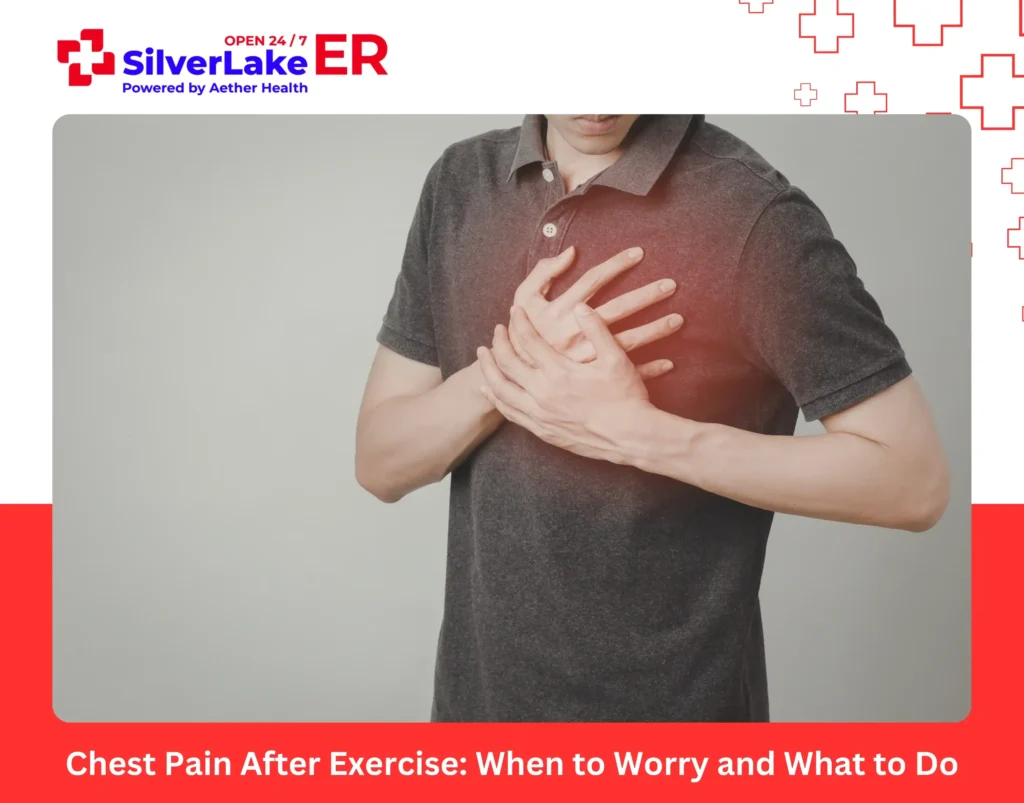Your nagging headache or persistent chest pain might not seem urgent now. But your body often speaks in whispers before it screams. What starts as mild discomfort can quickly turn into a medical crisis that demands an immediate trip to the ER.
Many people ignore early warning signs, hoping their symptoms will improve on their own. But this gamble with health often leads to complications and longer recovery times.
At Silver Lake ER, our emergency physicians spot warning signs early so you can make timely decisions about your health. From advanced cardiac monitoring to rapid diagnostic testing, we provide immediate care before mild problems become life-threatening emergencies.
1. Chest Pain or Pressure
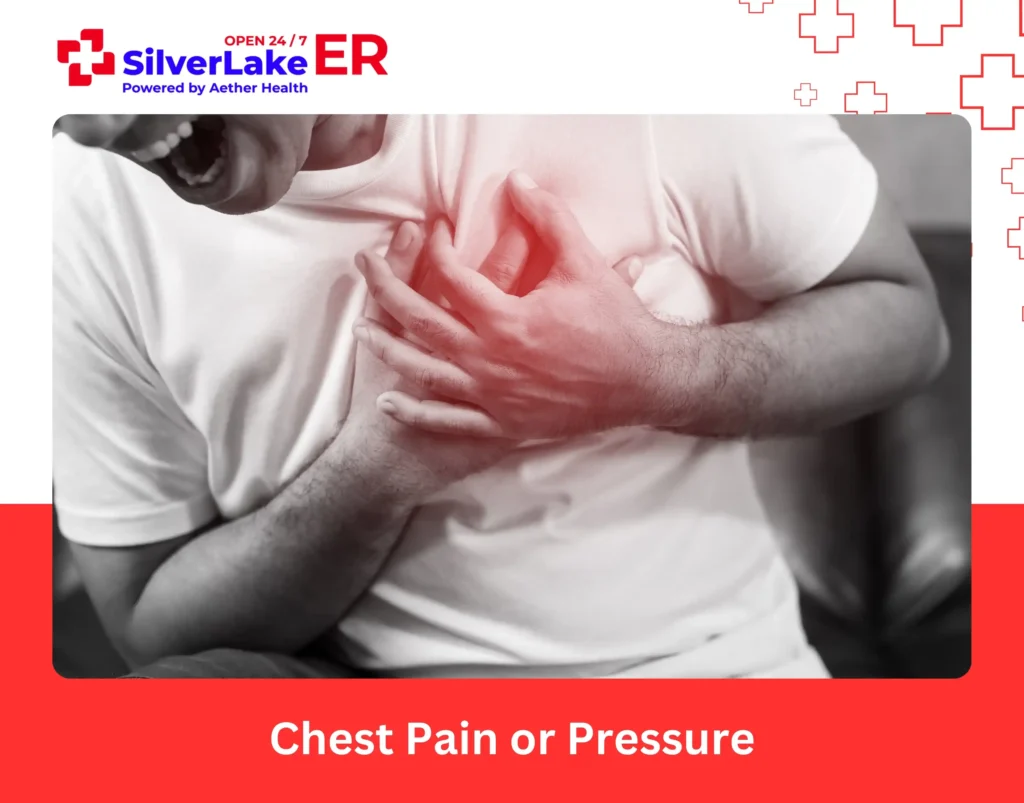
Chest pain can be a sign of a heart attack, especially if accompanied by shortness of breath, nausea, dizziness, or pain radiating to the arms, jaw, or back. Heart disease remains a leading cause of death worldwide, and recognizing early symptoms can be life-saving.
If you’re experiencing persistent or intense chest pain, don’t ignore it. Factors such as a family history, high blood pressure, high cholesterol, or smoking can increase the risk of heart conditions. Additionally, stress and anxiety can sometimes mimic heart-related symptoms.
A medical professional often conducts tests such as an EKG or blood tests to determine whether the pain is heart-related or due to another cause.
2. Difficulty Breathing
Shortness of breath, wheezing, or severe difficulty in breathing can indicate conditions such as asthma attacks, pneumonia, pulmonary embolism, or heart failure. Respiratory distress can be caused by infections, allergies, or underlying lung diseases such as chronic obstructive pulmonary disease (COPD).
Certain environmental triggers, like air pollution, allergens, or extreme weather changes, can worsen breathing problems. Those with pre-existing respiratory problems should seek medical care if they notice worsening symptoms or if their usual treatments seem ineffective. If breathing issues occur suddenly and severely, emergency care is necessary to prevent further complications.
3. Sudden Weakness, Numbness, or Slurred Speech
These symptoms may signal a stroke. Facial drooping, arm weakness, or difficulty speaking require immediate medical attention. Other possible signs include loss of balance, vision changes, or severe headaches.
Strokes can be caused by blood clots or bleeding in the brain. Risk factors include high blood pressure, diabetes, obesity, and smoking. Call emergency services immediately if you or someone near you exhibits any of these warning signs.
Medical professionals can use diagnostic imaging tests like CT scans to determine the type of stroke and administer clot-busting medications or other treatments accordingly.
4. Severe Abdominal Pain
Intense and persistent abdominal pain can indicate conditions such as appendicitis, gallstones, bowel obstruction, or kidney stones. While mild stomach pain may result from indigestion or gas, prolonged pain should never be ignored.
Conditions like pancreatitis or a perforated ulcer require urgent care. If abdominal pain is accompanied by vomiting, fever, bloating, or difficulty passing stool, in this case an ER visit is essential.
Pregnant women experiencing sharp or localized pain should also seek immediate medical evaluation, as it could indicate pregnancy complications.
5. Head Injury with Loss of Consciousness

A head injury resulting in unconsciousness, confusion, persistent vomiting, or severe headaches may indicate a concussion or traumatic brain injury. Even if symptoms appear mild at first, medical assessment can help rule out more serious conditions.
Concussions can affect memory, coordination, and cognitive function. Repeated head injuries, especially in athletes, can have long-term effects on brain health. If a head injury leads to seizures, difficulty waking up, intense headaches, or behavioral changes, emergency care is necessary.
6. Uncontrolled Bleeding
Heavy bleeding that does not stop with direct pressure may require emergency care. Significant blood loss can lead to weakness and shock. Internal bleeding, though not always visible, can cause dizziness, fainting, or severe pain and should be addressed immediately.
Bleeding disorders, blood-thinning medications, or underlying medical conditions can make it harder for wounds to clot. If the bleeding is accompanied by weakness, rapid heartbeat, or clammy skin, seek immediate help.
7. High Fever with Severe Symptoms
A fever above 103°F, especially in children or older adults, may signal a serious infection such as meningitis or sepsis. Symptoms like confusion, stiff neck, rash, difficulty breathing, persistent vomiting, intense headaches, or unresponsiveness require urgent evaluation.
Infections such as urinary tract infections, pneumonia, or even COVID-19 can cause high fevers. Dehydration from prolonged fever can make symptoms worse. While mild fevers often resolve on their own, severe or prolonged fevers with other alarming symptoms warrant immediate medical attention.
8. Seizures or Sudden Confusion
Seizures, particularly if prolonged or occurring for the first time, require emergency attention. Sudden confusion, difficulty recognizing people, or trouble speaking may indicate a neurological emergency that needs immediate care.
Epilepsy, head trauma, metabolic imbalances, or infections can trigger seizures. If someone has a seizure lasting more than five minutes, appears to stop breathing, or has multiple seizures without regaining consciousness, call emergency services immediately.
9. Severe Allergic Reactions
Anaphylaxis is a life-threatening allergic reaction characterized by difficulty breathing, swelling of the throat or tongue, hives, dizziness, and a drop in blood pressure. Common triggers include food allergies (nuts, shellfish), insect stings, medications, or latex exposure.
Using an epinephrine auto-injector can help manage symptoms, but emergency care is still necessary to prevent recurrence. Even if initial symptoms subside, further monitoring is required as secondary reactions can occur hours later.
10. Suspected Poisoning or Overdose
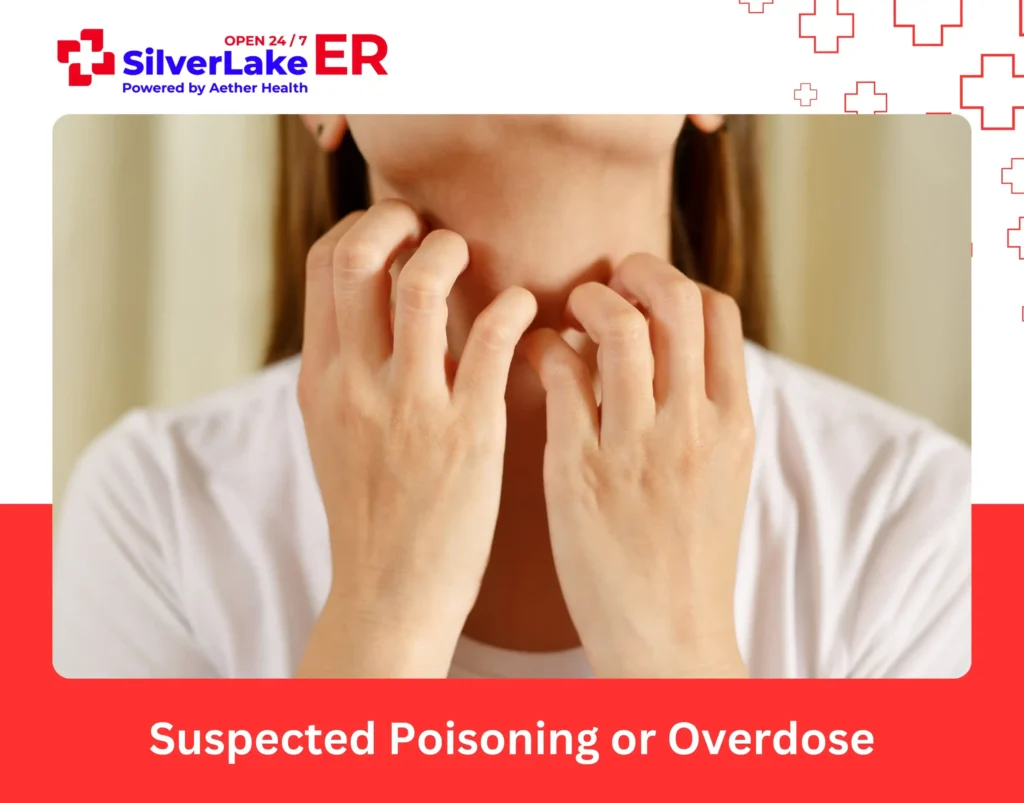
Ingesting a toxic substance, overdosing on medication, or exposure to harmful chemicals can lead to serious health risks. Symptoms such as vomiting, confusion, difficulty breathing, seizures, or unconsciousness require immediate medical intervention.
Accidental poisoning can happen with household cleaning products, prescription medications, or carbon monoxide exposure. Quick medical support can help prevent further harm through treatments such as activated charcoal or antidotes.
[Get Emergency Treatment for Chemical Exposure]
Key Takeaway
Delaying treatment for serious medical issues can lead to long-term damage or worse outcomes. If you or a loved one experiences any of the symptoms mentioned, seek prompt medical attention.
Silver Lake ER is equipped with advanced medical technology and experienced healthcare professionals to address urgent medical conditions. Our facility provides rapid diagnostic services, including imaging and in-house laboratory testing, to ensure timely treatment.
FAQs
Can I drive myself to the ER?
If your condition is serious, such as a suspected heart attack, stroke, or severe injury, it is safer to call 911 for an ambulance. Paramedics can provide lifesaving treatment on the way to the ER.
What should I bring to the ER?
If possible, bring your ID, insurance card, a list of current medications, medical history, and emergency contact information. Additionally, if you have any known allergies or medical conditions, carrying a medical alert card or bracelet can be helpful.
What if I’m unsure whether my symptoms require emergency care?
If you are unsure, it is best to err on the side of caution and seek medical advice. You can call Silver Lake ER for guidance or visit immediately if symptoms are severe. Our medical staff is available 24/7 to assess your condition and provide necessary care.
What happens if I need further treatment after my ER visit?
If you need further treatment after your ER visit, the medical team will guide you on the next steps. This may include referrals to specialists, follow-up appointments, or additional tests to monitor your recovery.


